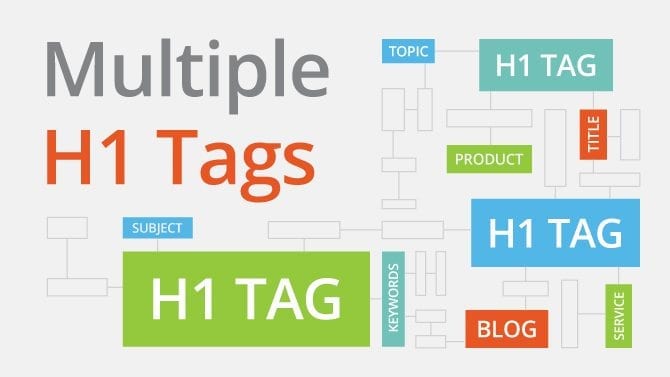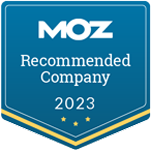
The Truth Behind the H1 Tag (Can You Use it More Than Once?)
You have probably heard the rumor that you should never use an H1 tag more than once per page. But is this true? Are you really limited to only of one these SEO gold mines? That may have been the case in the past, but it’s time to shove your old SEO techniques to the wayside and get on board with the multiple H1 tag bandwagon.
Why You Need H1 Tags
Your H1 tags are arguably the most important part of your webpage (Of course, the actual content is always king.). They let the search engine bots know exactly what each page covers so they can offer it up to the user when your keywords are searched. There’s just one problem: What if a page talks about more than one subject? If you are limited to a single H1 tag, you either have to make the headline so broad it is no longer relevant or choose which topic you think matters the most. Neither of these are good options. However, when you employ a separate H1 tag for each new subject, everything you cover gets equal attention from the powers that be.
How to Use Them Properly
Okay, so H1 tags are pretty awesome. They are like putting a spotlight on your keywords for the entire world to see. Even though you are no longer limited to one per page (thanks, HTML5!), you must use them sparingly and only when appropriate. If you go overboard, the Google gods will come hunt you down and impose a penalty that will take a lot of work to come back from. But since you know better than to make every sentence an H1 tag, here are the current guidelines you should follow:
- Insert an H1 tag when you are switching topics. This can be a new blog entry, a different service being offered, or the introduction of an original product. As long as the H1 tag has nothing to do with the content above it and only relates to the words below it, you are good.
- Always include your main keywords. Yes, this may be SEO 101, but it’s important enough to mention. Since your H1 tag is the main indicator to Google of what you are talking about, it better be precise. And the sooner you can mention your keywords, the better.
- Make it catchy. Remember, even though you are using the H1 tag for the search engines, it is ultimately your visitors who you want to make happy. If your titles will not get your user to continue reading, there was really no point in getting them to your page in the first place. Oh, and it should go without saying, but please use correct spelling and grammar, no matter what keywords you are trying to target.
When used properly, H1 tags can be the change you need to take your website from okay rankings to stellar ones. So forget anything you have ever been told about H1 tag limitations, and move forward into this new frontier of SEO.





